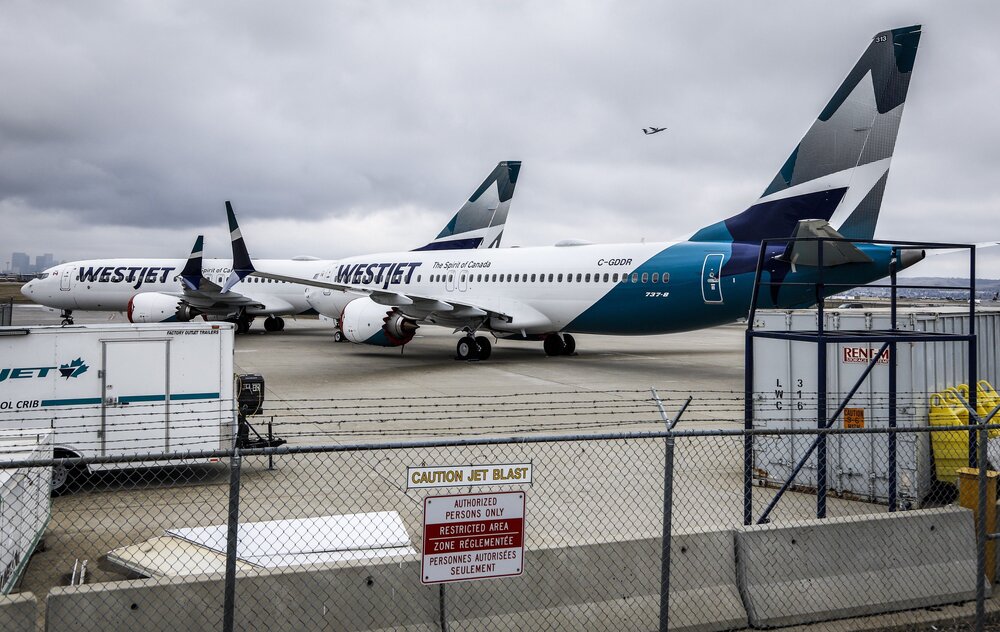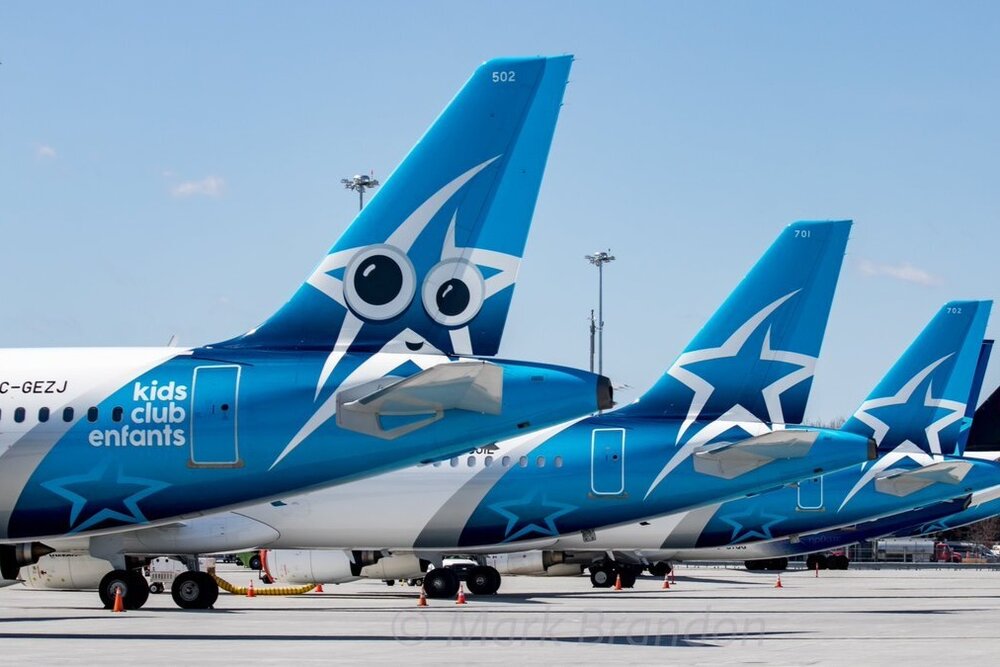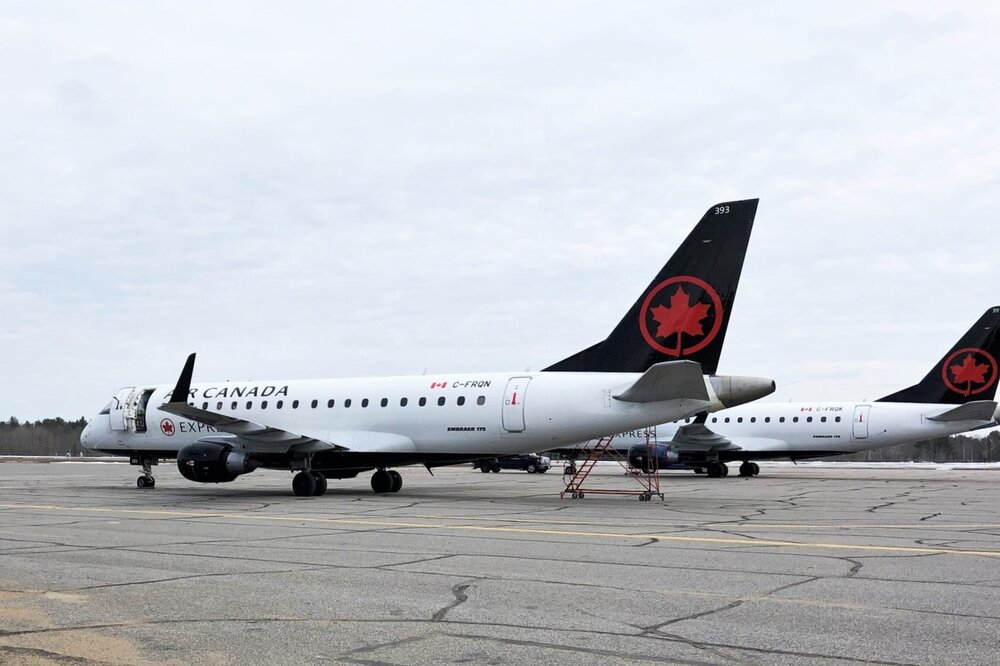One developing story that I’ve had my eyes on in the midst of the pandemic is the response of Canada’s airlines to customers who have been affected by flights that have been cancelled by the airline.
As I wrote about a few weeks ago, while customers are entitled to a full refund to the original form of payment under the law, the airlines have banded together to offer only travel credits that are valid for the next 24 months instead.
Spearheaded by Dr. Gabor Lukacs of the Air Passenger Rights organization, Canadian travellers had no choice but to stand up for their rights, both by resorting to credit card chargebacks to obtain their rightful refunds and by drawing an increasing amount of media attention to the matter.
So, how have things played out over the last few weeks?

Canada’s Airlines Have Not Covered Themselves in Glory
Longtime readers will know that I do my best to take a balanced view of any contentious issue, giving due consideration to both sides’ perspectives and looking at the bigger picture whenever possible.
And when it first became apparent that Canada’s airlines were refusing to provide refunds, I was keen to remind readers that they were doing so as a matter of survival: put simply, if they paid out refunds to everyone who was due a refund, they would run out of cash and liquidate, and there wouldn’t be any airlines left.
However, I’ve been thoroughly disappointed by how our airlines have acted throughout the whole ordeal, and while I’d still encourage travellers to think about the long-term well-being of the travel industry before initiating chargebacks, I must say that my sympathy for the airlines is dwindling day by day the longer that their anti-consumer policies drag on.
We’ve seen many other airlines around the world working with customers by offering creative incentives to accept travel vouchers, such as a 15% or 20% increase in the value of the vouchers compared to the original ticket, or perhaps a token amount of frequent flyer miles in exchange for the inconvenience of accepting vouchers.
On the other hand, Canada’s airlines have been steadfast in their position, even going to such lengths as unilaterally issuing travel vouchers without communicating with customers at all, as well as misleading customers by citing a “Statement on Vouchers” by the Canadian Transport Agency (CTA) as though it was a legally binding ruling, which it is not.
What exactly is this “Statement on Vouchers”, you ask?

The Canadian Transport Agency Posts a Statement…
On March 25, the CTA posted the Statement on Vouchers on its website, which you can read here. The relevant section, which comments on the airlines’ practice of providing 24-month travel vouchers in lieu of refunds, reads as follows:
While any specific situation brought before the CTA will be examined on its merits, the CTA believes that, generally speaking, an appropriate approach in the current context could be for airlines to provide affected passengers with vouchers or credits for future travel, as long as these vouchers or credits do not expire in an unreasonably short period of time (24 months would be considered reasonable in most cases).
Needless to say, it was highly disappointing to see the CTA siding with the airlines on this one.
Don’t forget: the Department of Transportation in the USA were quick to remind the airlines of their responsibilities under the law to provide refunds. Considering the unprecedented situation, the DOT was happy to give airlines some leeway in terms of the timing of the refunds, but still clarified that the refunds must be issued eventually, and that 24-month travel vouchers were certainly not a reasonable alternative if the customer did not accept them.
Meanwhile, the European Union issued a similar directive, clarifying that “in case of cancellations, the transport provider must reimburse or re-route the passengers,” and rejecting airlines’ calls for an exemption to the legislation in light of the circumstances.
And yet, here we are in Canada, where the CTA’s Statement on Vouchers, despite being merely an impulsive, unattributed statement with no legal grounding, nevertheless gave readers the illusion of a legally binding ruling. It therefore served no purpose other than to give the airlines further ammunition to reinforce their unlawful position when dealing with customers.

As soon as the statement was published on March 25, airlines began referencing it when telling customers that they were not entitled to refunds, even though the statement was by no means a legally binding ruling. Similarly, and perhaps even more worryingly, we’ve seen travel insurance providers cite the statement and deny insurance claims on the basis that airlines providing travel vouchers are taking an “appropriate approach” as per the CTA.
(Having said that, most instances of credit card chargeback claims seem to be grounded in the law rather than the Statement of Vouchers, which is at least good news.)
For an agency with a self-proclaimed commitment to “ensuring effective monitoring and enforcement of industry compliance with legislative and regulatory provisions”, the CTA’s stance on vouchers is laughable to say the least.
…But Is Forced to Backtrack
Thankfully, Canadian travellers did not put up with the CTA’s efforts to mislead the public. Quite incredibly, the Air Passenger Rights organization swiftly issued a cease-and-desist letter to the CTA, which was then expedited by the Federal Court of Appeal.
Feeling the heat, the CTA has since clarified its statement in its April 22 release titled “FAQs: Statement on Vouchers”, in which it says very little of actual value, but at least clearly backs away from its original position; perhaps the most noteworthy snippet is the CTA conceding that the original Statement on Vouchers was “not a binding decision”.
However, further portions of the CTA’s FAQs continue to mislead, such as falsely citing “European countries that have approved the issuance of vouchers instead of refunds”, as well as these paragraphs under the title “Do I have to accept a voucher if I think I’m owed a refund?”:
If you think that you’re entitled to a refund for a flight that was cancelled for reasons related to the COVID-19 pandemic and you don’t want to accept a voucher, you can ask the airline for a refund.
Sometimes, the airline may offer a voucher that can be converted to a refund if the voucher hasn’t been used by the end of its validity period. This practice reflects the liquidity challenges airlines are facing as a result of the collapse of air travel while giving passengers added protection in the event that they ultimately can’t take advantage of the voucher.
If you think you are entitled to a refund and the airline refuses to provide one or offers a voucher with conditions you don’t want to accept, you can file a complaint with the CTA, which will determine if the airline complied with the terms of its tariff. Each case will be decided on its merits.
Telling customers that “you can ask the airline for a refund”, when the airlines have spent the past month boldly denying customers’ refund requests, is willful ignorance at best.
And inviting customers to “file a complaint with the CTA” if they aren’t satisfied… well, it shouldn’t take a genius to figure out what the likely outcome of such a complaint would be, given the CTA’s clear and obvious bias in favour of the airlines, would it?

It’s quite telling that the CTA makes no reference to the single most effective channel for claiming the full refund that you’re legally entitled to, which is to file a credit card chargeback for services not delivered.
While there were initially a few reports that credit card companies were refusing to initiate chargebacks related to air travel (perhaps due to being overwhelmed by the volume of requests), most instances in the past few weeks have worked out in favour of the customer, with the credit card company crediting the amount back to the traveller’s credit card while the dispute is being assessed.
Conclusion
Of course, it’s still too early to say how the airlines are responding to credit card chargebacks, as merchants generally have 45 days to respond with evidence on their side.
We’ll therefore continue to mark this story as “developing”, although there are early signs that, through a combination of making use of the consumer protection measures at their disposal and the relentless advocacy by Air Passenger Rights, Canadian travellers are slowly turning the tide against our airlines’ unlawful policies regarding refunds on cancelled flights.
Once again, my sincere thanks and admiration go out to Dr. Gabor Lukacs for his tireless work, and I’d encourage you to join the Air Passenger Rights Facebook group if you’re seeking help with getting a refund of your own, as well as to leave a comment below if you’ve gone through the experience of pursuing a refund so that your fellow passengers may benefit from it.


